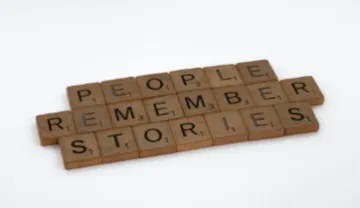The BRIDGES project kicks off its research and dissemination activities with its first video release and a publication on how to include the gender perspective in the analysis of migration narratives

BRIDGES is a Horizon 2020 project that analyses the processes of migration narratives’ production and impact in a context of increasing polarisation and politicisation around migration issues in Europe. The project released its first video on how to bridge the gaps in the study of migration narratives and the BRIDGES Guidelines on how to include the gender perspective in the analysis of migration narratives.
Bridging the gaps in the study of migration narratives
What do we mean by “narrative”? How are narratives on migration produced and re-produced in the media and policy arenas? And at the individual level? Three experts from the BRIDGES Consortium answer these questions from different disciplines in the first video of the project: Verònica Benet, expert on Social and Personality Psychology and ICREA Research Professor at Pompeu Fabra University (UPF); Christina Boswell, Professor of Politics at the University of Edinburgh (UEDIN); and Marcello Maneri, professor of Media and Cultural Sociology and Research Affiliate at the Forum Internazionale ed Europeo di Ricerche sull’Immigrazione (FIERI).
Each of them brings his/her own perspective to this video, where they explore the many gaps in the study of migration narratives and how the project aims to bridge them. Gaps between disciplines, between the different stages in the development of those narratives, and between research and practice… All of them need to be bridged to better understand how narratives are produced and what is their impact in a context of increasing polarisation and politicisation around migration issues in Europe, as explained throughout the video by Blanca Garcés-Mascareñas, Senior Research Fellow at CIDOB and BRIDGES Scientific Coordinator.
Bringing gender into migration studies
BRIDGES also released the first publication of the project: the Guidelines on how to include the gender perspective in the analysis of migration narratives, co-authored by Berta Güell, Researcher at CIDOB and BRIDGES Assistant Coordinator, and Sònia Parella, Director of CER-Migracions and Member of the BRIDGES Gender Observatory. They provide a conceptual and methodological framework for the inclusion of a gender and intersectional perspective in migration studies, and in the analysis of migration narratives, more specifically.
These Guidelines are one of the core tasks of the BRIDGES Gender Observatory, whose aim is to ensure the inclusion of this perspective throughout the project, from data-gathering and analysis to co-production and dissemination activities. Since there is scarce literature on this topic, they may indeed be useful for any other project dealing with narratives or migration issues, and willing to include a gender and intersectional perspective as a cross-cutting feature of its activities.
BRIDGES’ next steps
The BRIDGES Guidelines and the video are the first research and dissemination outputs of the project, which kicked off its activities in March 2021 and will be running until February 2024.
Over the next months, the BRIDGES team will be carrying out research on the production of migration narratives in media and social media in six different European countries, and on innovative strategies against exclusionary narratives. Two Working Papers setting the conceptual and analytical framework of the research and analysing the evolution of migration narratives from a historical perspective will also be released in the upcoming weeks.
All these activities can be checked out on the BRIDGES website and will be soon collected, together with more updates, in the first newsletter of the project, which also counts with its own Twitter account and Youtube channel.
“BRIDGES: Assessing the production and impact of migration narratives” is a project funded by the Horizon 2020 EU Framework Programme for Research and Innovation and implemented by a diverse consortium of 12 universities, think tanks, research centres, cultural associations, and civil society organisations from all over Europe under the coordination of CIDOB.